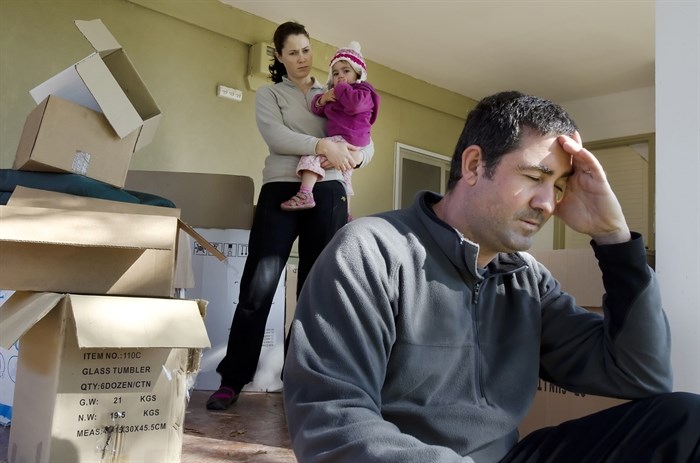More people fighting rental evictions in B.C. and having to wait longer
As of Jan. 1, landlords had tough new rules to follow before they can evict people in order to renovate and raise rents.
Despite that change, the number of appeals of eviction notices has taken a jump and the Residential Tenancy Branch is so swamped it can take a month to get an “emergency” hearing.
“What we’re seeing is, there is a significant number of people who are disputing a two-month notice to end tenancy because the property has sold,” Hunter Boucher, director of operations for LandlordBC told iNFOnews.ca. “We have seen an increase in that specifically. I think a lot of that comes down to getting more time. Currently the wait time at the Residential Tenancy Branch for a hearing is three to four months.”
The Residential Tenancy Branch confirmed, in an email, that wait times for standard disputes average 15.3 weeks – almost four months.
Emergency disputes average 4.2 weeks and monetary disputes 27.7 weeks, or more than half a year.
It can take 30 days to get a decision, although 80% are issued within three days, the email said.
“We are working to improve wait times at the Residential Tenancy Branch, which is currently dealing with a high volume of applications,” the email said. “This has meant the process is taking longer, in addition to the usual process of obtaining all relevant documentation and evidence, which can also add time to the process. We recognize this can be challenging for tenants and landlords who need to get a resolution to their issue.”
A lot of the appeals seem to be filed by tenants wanting to buy themselves more time.
Given the hot real estate market, many units are selling with the new owners saying they want to move in.
READ MORE: Housing sales dropped in Kamloops, Okanagan in March but prices shot up
If an owner, or close family member, wants to move in they have to serve two months notice on the tenant and have to live there for at least six months, Boucher said.
On the flip side is the tough rental market where two months can be a very short time to find a new place to live, especially at comparable rental rates.
No matter how legitimate their intentions, Boucher has seen a number of examples where tenants admitted filing appeals just to buy themselves more time.
“In the cases we’ve been privy to, the landlords have significant evidence that they do intend to live there and they are successful in their hearings,” he said.
This is due, at least in part, to the fact that new owners have to pay 12 months rent to an evicted tenant if they don’t move into the unit themselves.
With the average one-bedroom apartment renting for $1,710 a month in Kelowna, that’s a penalty of $20,000 or more. The average one bedroom apartment rental in Kamloops was $1,539 per month so a 12-month penalty could cost $18,500 or more.
READ MORE: Volatile March drops some Kelowna rents, boosts others
Prior to the COVID-19 pandemic, the Residential Tenancy Branch averaged 1,550 applications for appeals of eviction notices per month. It does not track the number of eviction notices filed.
The number of appeals fell to 1,000 during the earlier months of the pandemic when evictions were prohibited except for a few specific reasons.
When that moratorium was lifted in September 2020, appeals jumped to 2,245, the branch’s email said.
In the last 12 months it’s averaged 1,720 appeals per month with 1,942 filed in March.
This comes despite the fact that “renovictions” have now been virtually eliminated.
The new rules require the landlord to not only prove that the unit needs to be renovated, but has to have things like building permits in place in order to do so, Boucher said.
Tenants can challenge those claims but no eviction can go ahead until the dispute is settled.
The Residential Tenancy Branch does not have data on the types of appeals filed, their success rate or any regional breakdown.
As of Jan. 1, B.C. landlords were allowed to increase rents by 1.5%. Not all did since it's such a small part of their income (about $25 per month for the units mentioned above).
Like everyone else, they are facing increased costs, Boucher noted.
"It's primarily insurance," he said. "That’s one of the biggest drivers of cost."
To contact a reporter for this story, email Rob Munro or call 250-808-0143 or email the editor. You can also submit photos, videos or news tips to the newsroom and be entered to win a monthly prize draw.
We welcome your comments and opinions on our stories but play nice. We won't censor or delete comments unless they contain off-topic statements or links, unnecessary vulgarity, false facts, spam or obviously fake profiles. If you have any concerns about what you see in comments, email the editor in the link above.




